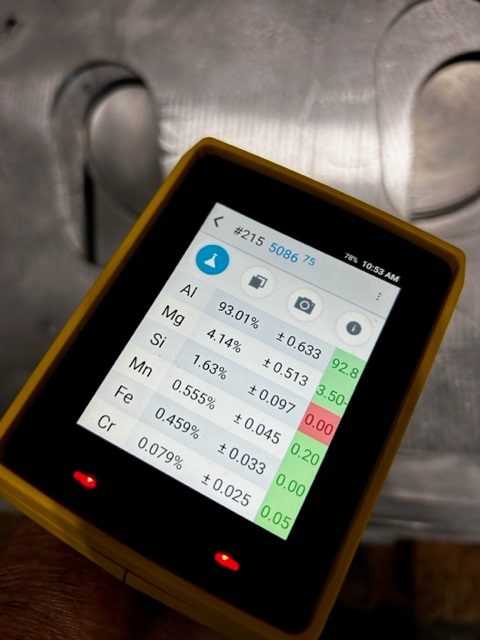Assuming your business isn’t part of the recycling industry, why should you care about trends in recycling?
We’d argue there are a lot of reasons that all business owners and leaders need to keep in touch with what’s going on with commercial recycling trends. Those reasons include:
- Recycling and waste management regulations are constantly changing on the municipal, state and federal levels. If your business is going to have to change any of its processes to comply with new law, having a lot of notice gives you plenty of time to pivot.
- Trends in recycling could affect pricing and procedures for your business. That could be useful information when you’re planning. (What can you expect to earn for your scrap metal over the coming year? Is there material you’re currently throwing away that’s going to become more widely accepted for recycling in the near future?)
- Recycling trends tend to be closely tied to improved energy efficiency, environmental protection and reducing waste. Customers and employees who care a lot about sustainability will notice if your business is engaged with recycling best practices.
There are a lot of “unknowables” in the future of recycling. Our industry is huge, complex and heavily influenced by factors that are both unpredictable and outside our control. That’s why it can be hard to make accurate predictions about very specific things like 2024 scrap metal prices. But, a lot of broader industry trends around things like recycling technology and legislation are easier to track.
Trends in Recycling: What Might Your Business Expect?
This isn’t a comprehensive list of things that we’re watching closely in the recycling industry in 2024. Instead, it’s a quick look at some of the recycling trends that might affect your business over the next few years.
The growing e-waste problem demands new solutions: Electronic waste generation grew by an estimated 60 percent between 2010 and 2019. E-waste is only going to continue to skyrocket over the next decade. Meanwhile, the U.S. doesn’t have the infrastructure or technology necessary to actually recycle more than a fraction of the electronics we throw away.
There’s not yet a clear fix for all the barriers that challenge e-waste recycling, though researchers and recyclers are actively working on new strategies to make the process more feasible and cost-effective. Stay tuned.
Waste ban legislation expands nationwide: Expect to see a lot of movement on many different types of waste bans over the next few years, especially at the municipal and state levels. For one, Washington state enacts its commercial organics ban in 2024, similar to the commercial organic waste ban we have here in Massachusetts. Several states and cities have also implemented new bans on single-use plastic bags in recent months.
Right now there aren’t any new statewide bans on the horizon for Massachusetts businesses or individuals, though we may see more new local bans implemented in the near future. (As one example, the town of Swampscott is set for a public vote in 2024 on a proposed bylaw that would prevent local restaurants from using takeout containers and utensils made from Styrofoam and other hard-to-recycle plastics.)
New EPR regulations could be coming: Extended producer responsibility (EPR) policies hold companies accountable for minimizing any end-of-life environmental impact of the products they make. For example, more than 10 states currently have EPR regulations about paint. In those states, paint producers are required to operate programs that take back unused paint from consumers and manage its disposal safely. Batteries and electronics are also covered by EPR laws in some places.
In the last few years we’ve seen a big push for the creation of new EPR laws around packaging. Expanded EPR regulation would incentivize manufacturers to create more sustainable packaging that’s easier to recycle than a lot of the plastic and Styrofoam packaging currently used for food and other products. Only a handful of states currently have EPR regulations for packaging, but they’ve all implemented those laws within the last few years. Expect to see more movement on this topic in the next few years.
The search continues for innovative strategies to recycle plastic: As I told you recently, there are some exciting things happening with biotech advancements for plastics recycling right now. Researchers have already had some success using fungi and enzymes to break down types of plastic that are rarely recycled. Finding new solutions for the plastic waste problem is a priority for the U.S. Department of Energy, which created the Strategy for Plastics Innovation (SPI) in 2019. The SPI’s goal is to “develop and manufacture new plastic technologies by 2030,” including an objective to develop recyclable plastics that can compete with traditional plastic.
Machinery improvements maximize recycling efficiency: A lot of exciting advancements in recycling machinery are making it faster and more cost-effective for recyclers to sort and process materials. Here at Miller Recycling, we can point our new scrap alloy analyzer at a piece of scrap brass and get an immediate readout telling us exactly how much copper, zinc and other metals that brass is composed of. Our new industrial wire stripping machine lets us strip the casing from cable as thick as a soda can in just seconds.
AI is also bound to become a bigger and bigger part of commercial recycling in the near future. Machine learning models combined with cameras and sensors could be used to scan and separate mixed waste more quickly and accurately, for one thing.
Have Specific Questions About Trends in Recycling?
Miller Recycling keeps our customers informed about the biggest news and trends in recycling. We’ll let you know before any major regulatory or technological advancements change the way your business manages its recyclable waste. In the meantime, I’m happy to address any questions or concerns about your business’s recycling needs. Contact me today!


